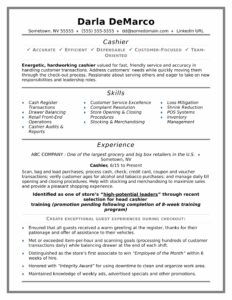This is part 4 and completes this series by describing how to “make it happen” in order to enhance your current job status or make a career transition.
Let’s face it, whether it’s your choice or someone else’s, when you’re out of work, especially in your late 40s or early 50s, it can be a world-rocking event! In my first blog about losing a job or needing to transition to a new job when you’re in the second half of your career, we saw the big picture impact of this major life event. In part 2, we saw the psychological effect losing a job can have and ways to begin to overcome the pressures that come with it. In part 3, we focused on preparing yourself for the next phase of your life from a personal, professional, and family perspective.
Now it’s time to put it all together to build your improved, well-rounded, and balanced life.
Get Ready… It’s Almost Game Time
Once you have done your research and feel comfortable that you know the industry, company, and job you want pretty well, the next part of your preparation is to get your resume up to speed. The fact is that you have between 4-10 seconds to catch a recruiter or hiring manager’s attention with your resume, and there are definite ways you can do that. First, you cannot build a “one size fits all” resume. Sure, a lot of the content will be similar or the same, but you need to tweak and customize it depending on the role you are applying for. You need to write or edit it with the recruiter or hiring manager’s perspective in mind. What do you think will be important to them? Which of your demonstrated skills will they be able to see as valuable to the role they are recruiting for?
Secondly, you need to write your resume with a focus on accomplishments rather than responsibilities. A common “mistake” in resume writing can be seen when one writes something like “Responsible for leading and directing a group of 10 team members to meet and exceed company goals.” Consider the difference in impact one can have if they changed that to read, “Led a team of 10 to exceed company goals by 10% and a ranking of 2 out of 20 divisions”. You may not have such clear numbers to share, but you can always wordsmith your responsibilities into accomplishments that will be more meaningful for the recruiter or hiring manager.
Lastly, you need to be able to describe or “defend” every statement on your resume. This shouldn’t be a difficult task because everything you write should be truthful with only a reasonable amount of embellishment… and not fabrication. This may be an obvious point, but the reality is that it is beneficial to both you and the hiring manager. From the hiring manager’s perspective, they can’t afford to hire the wrong person and try to train them for a position they are not qualified for only to let them go and start the whole process again. From your perspective, you want to put yourself in a position to succeed and you want to be motivated and excited by the role… not fearful that you can’t do the job and/or that your deceptiveness will be found out. In the end, being truthful with yourself and the hiring manager will benefit you greatly and will likely lead you to the right role.
There are many tools and web sites that can help you with your resume, but finding someone with enough knowledge to “pressure test” your content would be extremely valuable and helpful to your resume development.
Preparing for the Interview
Chances are that you haven’t had to interview for quite a while, or at least haven’t had to interview outside your company in a very long time. There are only 3 ways to get good at interviewing and they are to practice, practice and then practice some more. Think about it… how many interviews have you been in lately? It’s probably been a while. And even if it’s somewhat recent, how many have gone great? How many poorly? The fact is that without practice, and feedback, it’s very difficult to get comfortable and good with this critical skill. Remember, no matter how you got in the door for the interview (i.e. resume, referral etc.), you still need to present yourself impeccably to win the job. So take the time to practice verbalizing answers to specific questions. Make sure you can clearly and succinctly explain every aspect of your resume… including the results you produced. Do it while driving in your car, while walking your dog in a park, and definitely do it in front of a mirror. It’s always best to practice with someone who can help you with honest feedback and advice, but record your answers, at the very least, so you can hear (and see) how you might come across in an interview.
Your resume and interviewing skills are two things that you should not try to develop without any outside input. You want to have at least one other person look over your resume and work with you on your interviewing skills. You want someone who will be straightforward and honest with you. Someone who has the experience and ability to offer you good advice and guidance.
If you follow this general approach, believe it or not, you will land in a good place… a place you were meant to be. A place you found because you have begun thinking with your personal, professional, and family needs and desires in mind. You can be the person who loves getting up in the morning to get after another great day. You can be the person who loves their job. And most importantly, you can be the person who lives and loves their life with passion and meaning.
Thank you for reading this series. I hope you found it interesting and insightful. Here is a high level overview of how you can survive and thrive a job loss when your 50 +/- years old:
Steps to Survive and Thrive a Job Loss
1. Take a deep breath and focus on the things you’re are grateful for in your life
2. Plan & organize so you know what you want to accomplish and you can measure the progress you are making to get where you want to be
3. Include exercise or meditation as part of your daily plan in order to have a sound mind & body for your career search
4. Reconnect with your family or get to know them from a different perspective. What are their dreams and fears? What do they want for you and the family?
5. Take time to really try to figure out what you want to do next. You know what you’ve done professionally to this point, now it’s time to learn not only what your professional needs are, but what your personal and family needs are as well
6. Become an information junky. Seek out as much information as possible regarding where you want to take your life. Learn about any companies that might be a target for you and find as many people as you can to help with your preparedness… Learn to love LinkedIn!
7. Use whatever resources you can find to build your resume geared towards the industry or role you are interested in most. Get a mentor or coach to look at it and to challenge you to make it a great resume
8. Practice interviewing skills, out loud, with yourself or with someone else. Especially focus on those questions you think will be toughest to answer
9. Enjoy your life!!!
Ken Sher is a Career and Life Coach who focuses on the whole person when helping them with professional or personal issues they are trying to manage. If you would like to reach out to Ken, please email him at ken@shercoaching.com or visit his web site at SherCoaching.com




